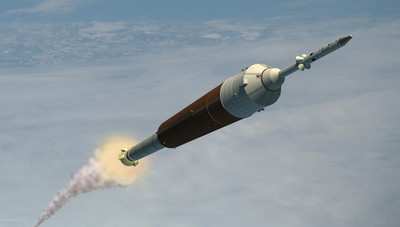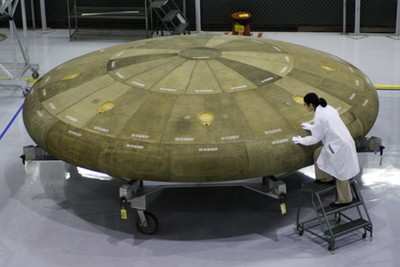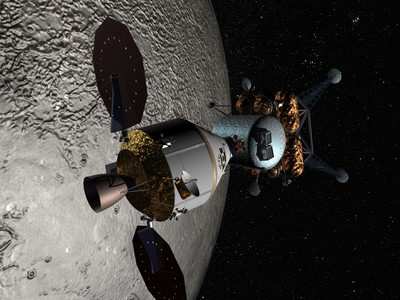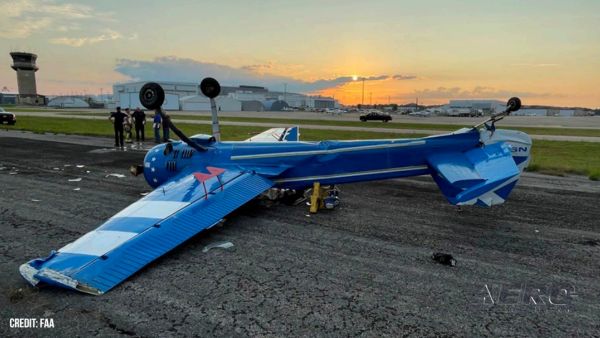Tech Concerns Strain Earlier Target; Politics Threaten Later
Date
Plan on 2015. That's the word from NASA this week, as the agency
admits it "very likely" will not be able to meet its ambitious goal
of started manned spaceflights with its Orion spacecraft in five
years. But even that date is in flux.

NASA already warned not to expect a manned Orion
flight before March 2015... but the agency was also working to
meet an internal schedule that would have moved up the first flight
by approximately 18 months. It's now extremely unlikely that
optimistic schedule will be met... but the agency only said so
publicly after the agenda to this week's meeting of program
managers in Houston was leaked on a NASA watchdog Web site.
The Associated Press confirmed the news with Doug Cooke, NASA's
deputy associate administrator for exploration. "We're probably
going to have to move our target date" from late-2013, Cooke
said.
Reasons for the expected delay in the agency's internal
timeframe for Orion are a mix of technological and financial
issues.
According to the 117-page report posted Wednesday on
NASAWatch.com, Orion has incurred an $80 million cost overrun this
year tied to problems with an attitude control motor under
development by Lockheed Martin and Orbital. That's one of 24
technical issues currently cited by Orion program managers; other
worrisome areas include the spacecraft's heat shield, and continued
vibration issues with the Ares I launch vehicle.

One difficulty brings up uncomfortable echoes to the darkest
days of the Apollo program: a hard-to-open access hatch, which was
one of the contributing factors to the loss of three astronauts in
the January 1967 Apollo 1 launchpad fire. Orion engineers are also
concerned with NASA's plans to supply astronauts with just two
liters of water each per day... at least a half-liter less than
what medical experts say they need.
Cooke says such issues aren't uncommon at this stage of
development, however, and he remains confident those technical
problems will be corrected. "What you're seeing is sausage-making,"
he said. "I'm really satisfied with the work that's getting
done."
There's a more ominous threat to Orion, however: budgetary
constraints. In the report, Orion engineers were told to plan for
continuing the program under a FY 2009 continuing resolution, which
would hold NASA's budget at 2008 levels... with none of the
additional funding contained in the
$20.2 billion NASA budget approved by the House of
Representatives in June.
NASA is concerned that budget won't make it out of the
Senate... and if it does, that the Bush admistration will veto
it. Such a defeat would push Orion back even further, making even
the March 2015 target a nebulous one.

"We have a government that is dysfunctional," said Syracuse
University technology and public policy professor W. Henry
Lambright. "I'm not blaming NASA. I think NASA is a victim of a
political situation we have in this country."
 Aero-News: Quote of the Day (05.25.25)
Aero-News: Quote of the Day (05.25.25) Classic Aero-TV: Efficient Versatility -- NASA GL-10 Greased Lightning
Classic Aero-TV: Efficient Versatility -- NASA GL-10 Greased Lightning NTSB Prelim: Cessna 525
NTSB Prelim: Cessna 525 Klyde Morris (05.23.25)
Klyde Morris (05.23.25) Airborne-NextGen 05.20.25: Drone Regs, Zero-Emission Cargo, Door-Dash Drone
Airborne-NextGen 05.20.25: Drone Regs, Zero-Emission Cargo, Door-Dash Drone





